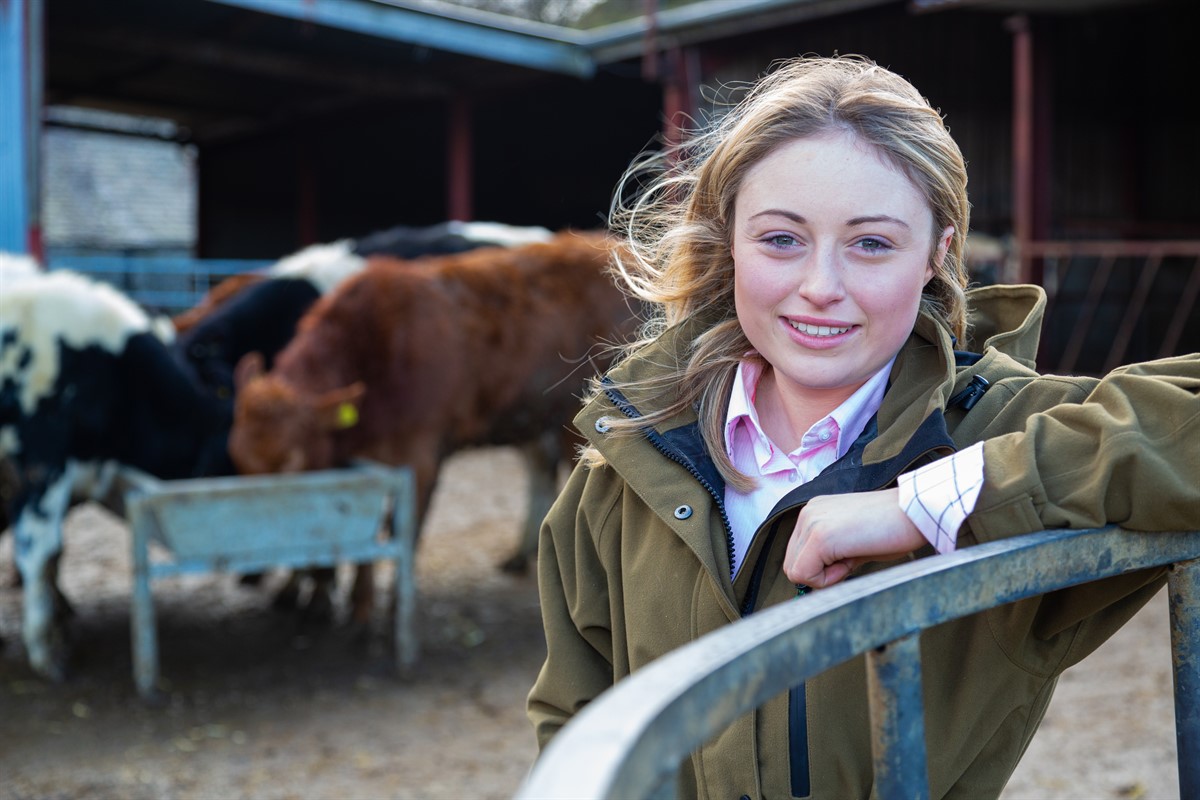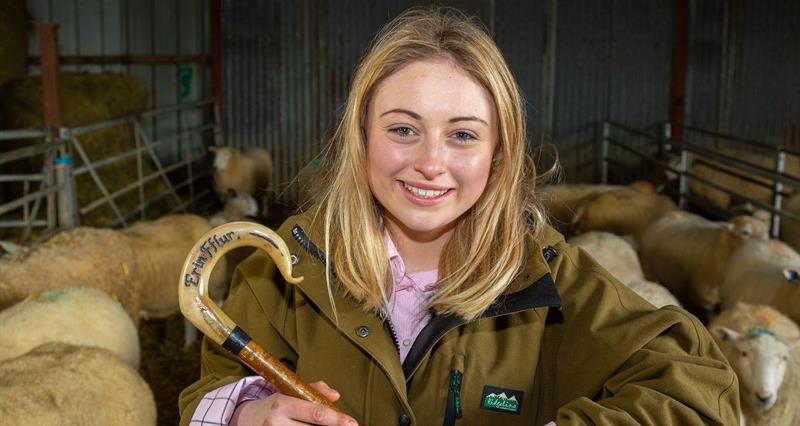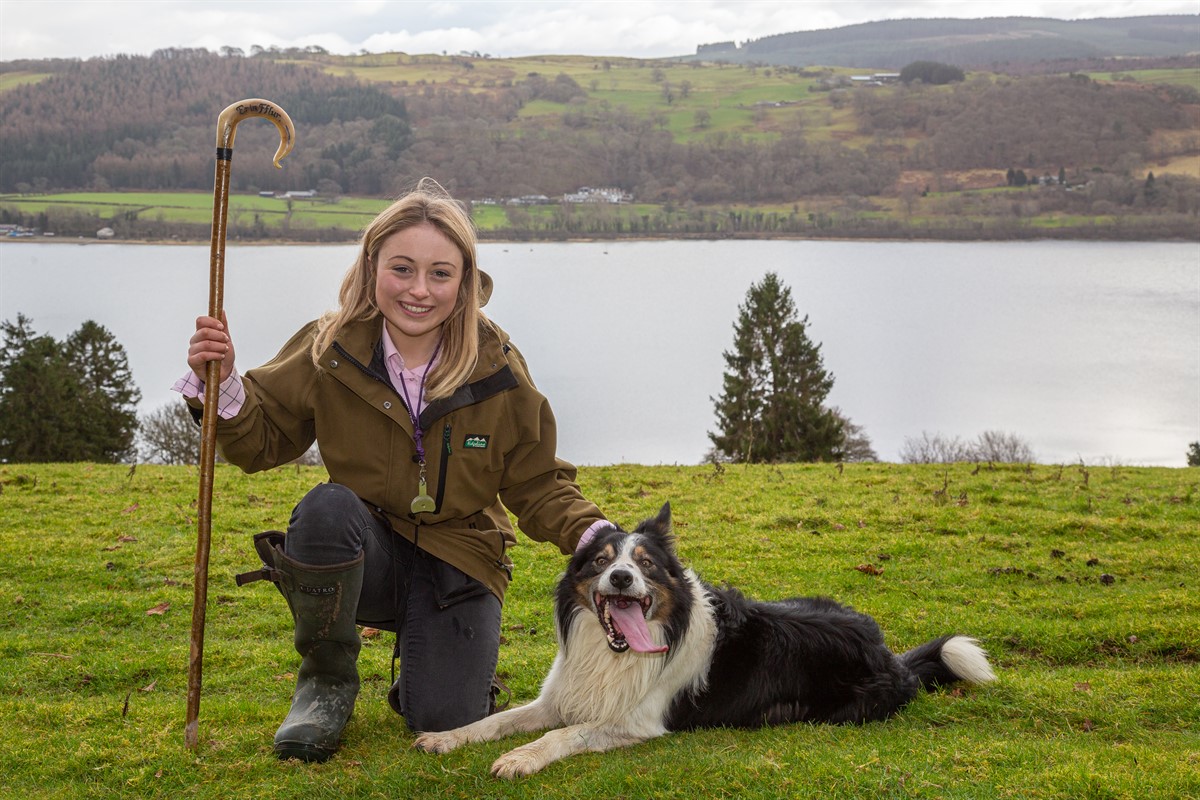On paper it shouldn’t work: a 76-year-old farmer allows his 19-year-old granddaughter the freedom to run the family farm and doesn’t interfere when she makes multiple changes to the farming system.
After all, older farmers often stand accused of a reluctance to hand over control to the next generation. That assertion is one that can’t be levelled at Erin Fflur McNaught’s grandfather, Rob, her ‘Taid'. He has stepped back from running the sheep and beef farm that has absorbed his life for decades to allow Erin the opportunity to make her mark in the business.
“I will be forever grateful to Taid, he is a very special man,” she admits.

The change came about after Rob was admitted to intensive care due to serious illness. He recovered but has since been unable to farm.
The turning point
“It was a turning point, for him and for me,” recalls Erin, who was studying for her GCSEs at that time. “I had always helped him after school and at weekends and he offered me the opportunity to run the farm.”
She didn’t abandon school at that point because all but 100 acres of the 350-acre holding were rented out and didn’t come back to the family until the summer of 2021.
Erin sat her A-Levels and achieved A* grades in biology, geography and Welsh BAC. Before her grandfather’s proposition, university had been beckoning. “It was always expected that I would go to university, but I was never totally sure if it was right for me,” she says.
The pull of the farm proved greater than the draw of further education and what began as a gap year between school and university is likely to extend into a second year and more.
Focus on making the farm profitable
“I am still considering university, if I did apply I would follow in my mother’s footsteps and become a teacher, but I won’t be going next year,” she insists.
In the meantime, the focus of this fourth-generation farmer is on making Pandy Farm at Rhos-y-Gwaliau, Bala, profitable.
Since the land has been taken back in hand, the 100-ewe flock has been expanded to 300 - Texel crosses on the lowland and Welsh Mountain ewes to graze the rough land on the higher ground.
Blue Faced tups are used to sire half the flock and improved Welsh rams on the other 50%.
Quality not quantity
For Erin, livestock farming is not about the number of animals but their quality.
“I hate it when people ask me how many sheep we have. I would prefer to have 100 of the best rather than 1,000 of anything, it’s about quality not quantity. That is why we look for the best rams we can buy, to get it right from the beginning.”
Erin has created an early lambing Texel-cross flock to catch the early trade, lambing in February ahead of the Welsh Mountains which lamb in March.
The decision was taken because a policy of reseeding is optimising grass growth, allowing an early bite for spring turnout. “The grass is there so it makes economic sense to graze it and capture the higher prices in the early market for lamb,” says Erin.
Lambs are sold liveweight, mostly into the fat trade but with some progeny from the Welsh Mountains sold as stores.
Phasing out suckler cows
Suckler cows had long been a component of the farming system but Erin has made the decision to phase these out and concentrate on rearing purchased dairy cross calves to rear and sell as stores.
“We had really struggled to get cows in calf, and it was a big cost to the business, carrying empty cows. I don’t think it is economical to continue like that.”
Her grandfather took some convincing that this policy was the right one, but his concerns were allayed in the first year.
“I had bought a few calves here and there and those animals brought us more income than the cows so my grandfather has realised it has worked and is very supportive of the change,” says Erin.
Calf rearing
Calves are sourced from a single dairy farm at Ruthin, a trusted source that gives his calves the best start.
When they arrive at Pandy Farm at around a month-old they are reared on milk for three to four weeks before weaning onto concentrates and straw. At eight months their diet is switched to silage and hay until they are sold as stores at 15 months at Ruthin mart.
Erin plans to make a further change to the system this year, buying calves in November and December so they are old enough to be turned out to pasture in the spring.
“I like to graze cattle outside because it is cheaper and it does the land good, especially for the management of the land we have with rushes,” she says.....
Read the full article in this month's Farming Wales magazine

